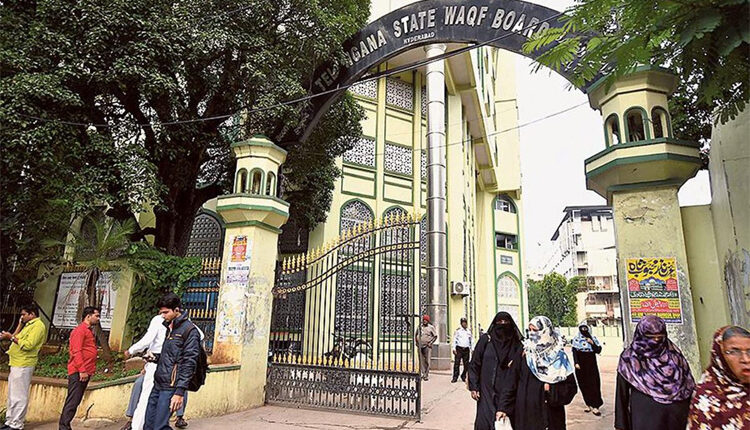Waqf Board Explainer: How much land it owns, its powers, what the govt wants to change and other questions answered
The Waqf (Amendment) Bill, 2024, aimed at amending the Wakf Act, 1995 – a law governing Waqf boards to ensure more accountability and transparency in their functioning and mandatory inclusion of women in these bodies, has drawn the ire of the Muslim community.
Under attack by the opposition parties, it has been referred to a joint parliamentary committee (JPC) for scrutiny after the government got the support of ‘secular’ constituents of NDA — the TDP and JD(U) – in the Lok Sabha.
HT examines the Waqf Amendment Bill, how much property do the Waqf boards own, the litigation and controversy surrounding the boards’ land and properties and their role in the development of India’s Muslim community.
What is Waqf?
Waqf is a permanent dedication of movable or immovable properties for religious, pious or charitable purposes as recognised by Muslim Law.
What is the Waqf Act, 1995?
As per this act, Waqf is “the permanent dedication of movable or immovable property for the purposes enshrined in Islam as pious, religious, or charitable.”
What are Waqf properties?
Waqf properties are donated by followers of Islam and are managed by members of the community. Each state has a Waqf Board, which is a legal entity that can acquire, hold, and transfer property. Waqf properties cannot be sold or leased permanently.
How much land does the Waqf Board in India control?
It controls and manages 9.4 lakh acres of land across 8.7 lakh properties, with an estimated value of ₹1.2 lakh crore. This makes the Waqf Board the third largest landowner in India, after the Indian Railways and the armed forces.
Why is the BJP government amending Waqf law?
The Bill to amend the Wakf Act, 1995, will make it mandatory for Waqf boards to register their properties with district collectors to ensure their actual valuation. Currently, the majority of the waqf board members are elected, but once the new Bill becomes law, all the members will be nominated by the government.
There is apprehension that this provision will ensure that those in power may have total control of the board. As per the new bill, even a non-Muslim can become the CEO and there is a provision that at least two members should be non-Muslim.
How many Waqf Boards are there in the country?
There are 30 Waqf boards in India.
What are the various kinds of Waqf properties?
In the main, they are agricultural land, buildings, dargah/mazars and graveyards, Idgahs, Khanqahs, madrasas, mosques, plots, ponds, schools, shops, and various other institutions.
How many Waqf properties are under litigation? According to the government, there are 40, 951 cases lying pending with Waqf tribunals, which are quasi-judicial bodies that resolve disputes related to waqf or waqf property: of these, 9,942 cases filed by the Muslim community against the institutions managing Waqf.
What are the kinds of litigations that the Waqf Board faces?
Over the years, the Waqf Board has faced several challenges, including issues related to property management, legal disputes, female representation, and the need for reforms.
Can judgments delivered by tribunals set up by the Waqf Board be challenged in a High Court?
A judgment delivered by a Waqf Board tribunal can be challenged in a High Court. The High Court can confirm, reverse, or modify the Tribunal’s determination.
How are the various Waqf properties listed and managed?
Waqfs in India are regulated by the Waqf Act, 1995. A survey commissioner lists all properties declared as Waqf by conducting local investigations, summoning witnesses, and requisitioning public documents. The Waqf is managed by a mutawalli, who acts as a supervisor.
Can the Waqf Board lay claim to any property it likes under Section 40 of the Waqf Act?
The Waqf Board can claim those properties of the followers of Islam, which have been donated for religious work. There is no mention of directly claiming any properties, nor does it say anything about private properties.
Can the Waqf Board declare any property as Waqf property?
The answer is No. Waqf means the permanent dedication by any person, of any movable or immovable property for any purpose recognised by the Muslim law as pious, religious or charitable…” It may include such properties that have been donated for religious or social work but are not being used for the stated purpose.

